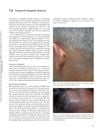 1 citations,
March 2021 in “Current Dermatology Reports”
1 citations,
March 2021 in “Current Dermatology Reports” Various treatments help hair growth, but more research needed for safety and effectiveness.
 1 citations,
November 2016 in “Journal of the Dermatology Nurses’ Association”
1 citations,
November 2016 in “Journal of the Dermatology Nurses’ Association” Finasteride treats hair loss but may cause side effects like low libido and dizziness.
 1 citations,
February 2012 in “The American Journal of Cosmetic Surgery”
1 citations,
February 2012 in “The American Journal of Cosmetic Surgery” UBM helps hair regrowth in men and women with hair loss.
 1 citations,
September 2011 in “Journal of Dermatology”
1 citations,
September 2011 in “Journal of Dermatology” A woman with a new PTCH gene mutation has both Gorlin syndrome and severe hair loss.
 1 citations,
April 2009 in “Cochrane Database of Systematic Reviews”
1 citations,
April 2009 in “Cochrane Database of Systematic Reviews” Review finds no permanent solution for female hair loss.
 1 citations,
January 2009 in “Cochrane Database of Systematic Reviews”
1 citations,
January 2009 in “Cochrane Database of Systematic Reviews” Review determines effective, safe treatments for female hair loss.

The combined treatment increased hair density in most patients with Androgenetic Alopecia.
 February 2024 in “PloS one”
February 2024 in “PloS one” Tofacitinib and adalimumab are promising treatments for cicatricial alopecia with few side effects.
 January 2024 in “International Journal of Health Science”
January 2024 in “International Journal of Health Science” Scalp cooling and low-power light therapy show promise in reducing chemotherapy-induced hair loss but need more research.
 December 2022 in “Journal of complementary medicine & alternative healthcare”
December 2022 in “Journal of complementary medicine & alternative healthcare” Traditional Chinese medicine improved hair loss in a teenager with alopecia.
November 2014 in “PharmaTutor” Finasteride may help postmenopausal women with hair loss but is not effective for all and should be used cautiously in premenopausal women.
 April 2012 in “Informa Healthcare eBooks”
April 2012 in “Informa Healthcare eBooks” Temporal triangular alopecia is a lifelong condition with hairless patches on the side of the head that may be present from birth.
 February 2012 in “Expert Review of Endocrinology & Metabolism”
February 2012 in “Expert Review of Endocrinology & Metabolism” The document suggests more research is needed to understand the link between baldness and prostate cancer.
 July 2021 in “International Ophthalmology”
July 2021 in “International Ophthalmology” Female hair loss patients more likely to have dry eye and gland issues.
 March 2021 in “Dermatological reviews”
March 2021 in “Dermatological reviews” Hair transplant works well, but needs more research for better results.
 December 2020 in “Skin appendage disorders”
December 2020 in “Skin appendage disorders” Finasteride may effectively treat hair loss in Klinefelter Syndrome patients.
 June 2019 in “Brain Imaging and Behavior”
June 2019 in “Brain Imaging and Behavior” Hair loss can indicate brain aging and potential small vessel disease, but more research is needed to understand the clinical impact.
 April 2019 in “Journal of the Dermatology Nurses’ Association”
April 2019 in “Journal of the Dermatology Nurses’ Association” A 37-year-old man with hair loss and skin issues was successfully treated with oral antibiotics, highlighting the need for early treatment. Long-term care includes low-dose antibiotics and avoiding caps and wigs.
 June 2018 in “Advances in Cosmetic Surgery”
June 2018 in “Advances in Cosmetic Surgery” Hair loss caused by genetics and hormones; more research needed for treatments.
 February 2010 in “Journal of The American Academy of Dermatology”
February 2010 in “Journal of The American Academy of Dermatology” Lower nitric oxide and higher fibrinogen found in hirsute women; impaired sexual function in 22.6% of hair loss patients, linked to psoriasis severity.
 100 citations,
April 2010 in “Expert Opinion on Pharmacotherapy”
100 citations,
April 2010 in “Expert Opinion on Pharmacotherapy” Hair loss in men treated best with early medication or transplant, new treatments researched.
 97 citations,
September 2006 in “Pharmaceutical Research”
97 citations,
September 2006 in “Pharmaceutical Research” No treatment fully prevents hair loss from chemotherapy yet.
 80 citations,
April 2018 in “Trends in Molecular Medicine”
80 citations,
April 2018 in “Trends in Molecular Medicine” Lichen Planopilaris and Frontal Fibrosing Alopecia may help us understand hair follicle stem cell disorders and suggest new treatments.
 61 citations,
January 2019 in “American Journal of Clinical Dermatology”
61 citations,
January 2019 in “American Journal of Clinical Dermatology” The cause of Frontal Fibrosing Alopecia is unclear, diagnosis involves clinical evaluation and various treatments exist, but their effectiveness is uncertain.
 28 citations,
January 2014 in “Indian Journal of Dermatology, Venereology and Leprology”
28 citations,
January 2014 in “Indian Journal of Dermatology, Venereology and Leprology” Chinese patients with primary cicatricial alopecia often have folliculitis decalvans, benefit from treatment, but may experience relapse, with dermoscopy being a useful diagnostic tool.
 11 citations,
April 2020 in “Journal of Dermatological Treatment”
11 citations,
April 2020 in “Journal of Dermatological Treatment” Taking oral isotretinoin with creams worked better for treating a type of hair loss than creams alone.
 8 citations,
October 2018 in “Journal of The American Academy of Dermatology”
8 citations,
October 2018 in “Journal of The American Academy of Dermatology” The review suggests there's no agreed treatment for Frontal Fibrosing Alopecia, but hydroxychloroquine and 5a-reductase inhibitors are most effective. New treatments like platelet-rich plasma and LED light could help if standard treatments fail.
 2 citations,
April 2022 in “Clinical, cosmetic and investigational dermatology”
2 citations,
April 2022 in “Clinical, cosmetic and investigational dermatology” A new plant-based treatment was effective for hair regrowth in women with a specific type of hair loss that didn't respond to usual treatments.
 1 citations,
March 1995 in “JAMA”
1 citations,
March 1995 in “JAMA” The woman's hair loss is likely stress-related and should improve without treatment.
 July 2022 in “Research Square (Research Square)”
July 2022 in “Research Square (Research Square)” Lower PPARγ levels and specific gene variations are linked to more severe Frontal Fibrosing Alopecia.





























